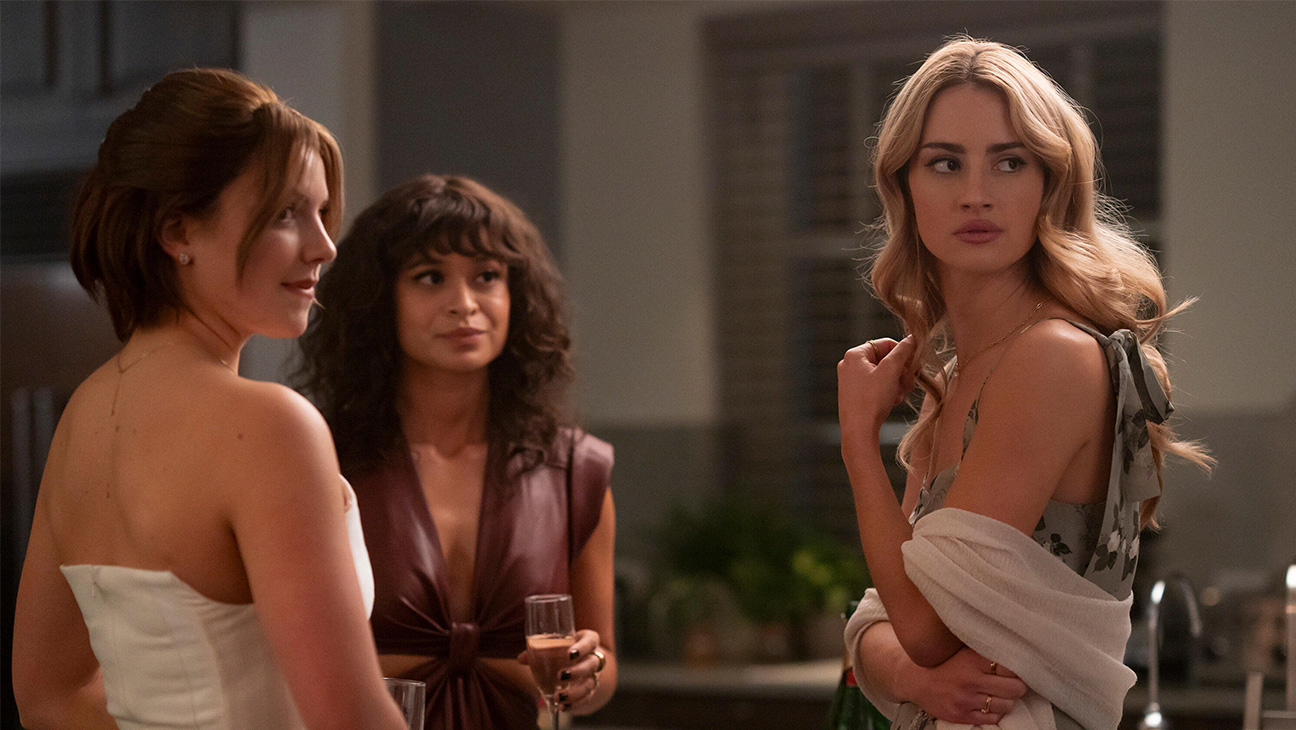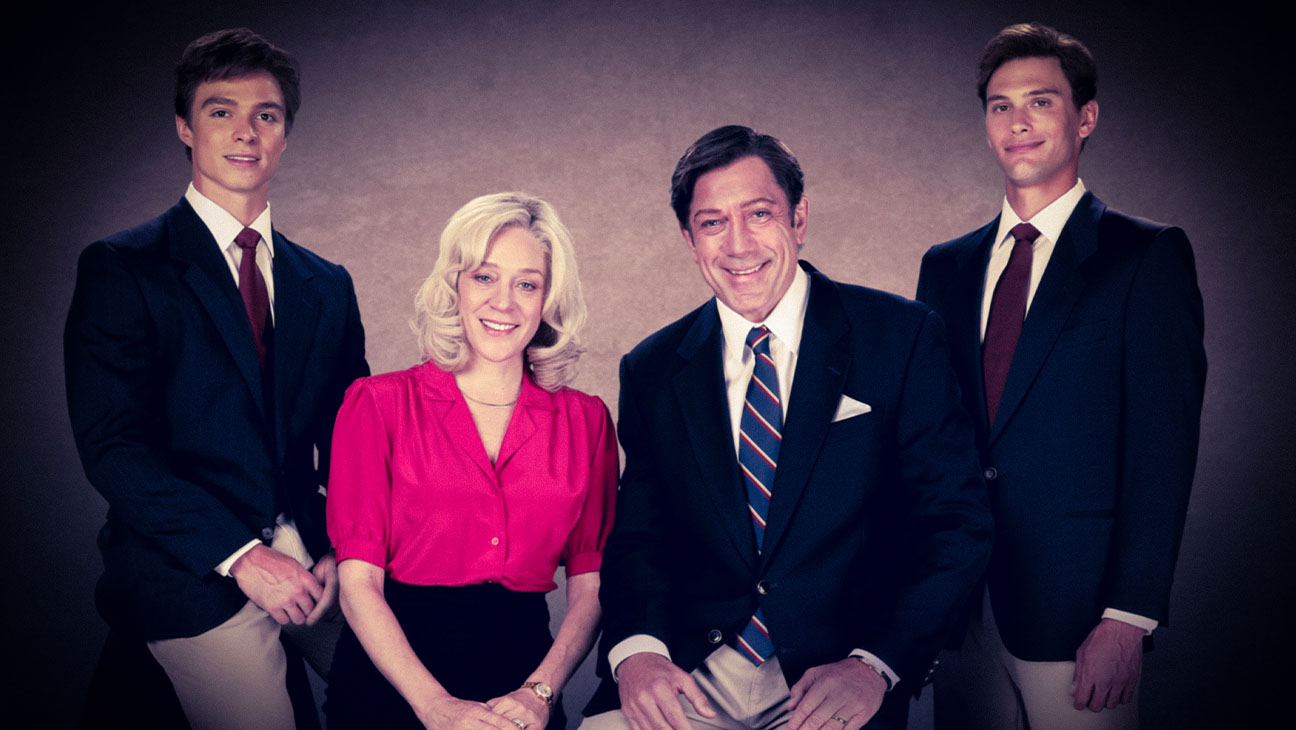[This story contains spoilers from the third episode of Chimp Crazy, “Head Shot.”]
Tiger King documentarian Eric Goode’s intense, sordid follow-up Chimp Crazy has been unfolding on HBO over the past couple of weeks. It centers on the fraught dynamic between exotic animal broker Tonia Haddix, the retired Hollywood chimp Tonka she claims to love more than her own children, and People for the Ethical Treatment of Animals (PETA), the activist group which has pursued a lengthy legal effort to have the primate sent to an approved sanctuary.
In the penultimate episode, which aired Sept. 1, viewers learned that Haddix, who’d previously claimed Tonka had died (she’d provided evidence that he’d been cremated), was keeping her “humanzee” hidden in her Missouri basement. “Do we turn her in?” Goode wonders, on camera, “or do we continue following the story?”
Haddix appears increasingly anxious as the chimp-hunt heats up. Actor Alan Cumming, an animal rights activist who starred alongside Tonka in the 1997 family comedy Buddy, draws international attention for matching PETA’s own $10,000 reward for information leading to Tonka’s whereabouts. “They would literally send a hitman after me, I swear to God by that, if they thought they could,” she says, adding: “They’re never going to leave me alone. I’m screwed.”
Near the episode’s end, she’s told a key member of the filmmaking team that Tonka is in congestive heart failure and that a vet has scheduled an imminent appointment to euthanize him. Soon, Goode is seen with PETA’s lawyer, revealing her admission.
The Hollywood Reporter spoke to Goode — who aside from his Emmy-nominated filmmaking efforts is known for being the founder of the Turtle Conservancy — about the Gordian knot of complexity and complicity he’s found himself in with this new project, which is poised to become HBO’s most-watched documentary series in years.
***
How did Chimp Crazy happen?
While I was filming what became Tiger King, I came to learn about this subculture of women who keep primates. They call themselves “monkey moms.” I know many of these niche groups — the tropical fish people, the reptile people, the bird people. But the monkey mom world was particularly odd and curious. For them, it’s like having kids. So, I started digging in. Through them, eventually, we eventually got to Tonia. But that took two years.
What did you bring from doing Tiger King to this?
Just that you don’t know what you’re going to get until you’re there. If there’s a story at all. You go in hoping.
It’s a different world this time than Tiger King.
The tiger people, it’s macho. “I’ve got a tiger, I’ve got a Lamborghini.” It’s this accessory. With these women, it’s much more of an intimate bonding relationship with these monkeys. They think they can be surrogate children, and then as time goes on, they have to think about castration and shock collars once they go through puberty — which is much younger than humans. With chimps, it’s about five or six years of age that they’re no longer manageable.
Tonia repeatedly states that Tonka is more important to her than her husband and her children. What did you make of that?
This was not the first time I’d heard that from these monkey moms. Sometimes it’s said in a more joking way. Tonia’s been through a number of relationships. I think her first husband died of some drug-related death. She recognized that she could trust these chimpanzees more than any human that she knew. She had more control of their destiny.

Director Eric Goode, Chimp Crazy.
Max
Chimp Crazy is full of characters — including the “proxy director” you hired, Dwayne Cunningham, who’s identified as having worked as a circus clown.
I had been working with Dwayne on my project in the world of the reptile trade. He’d been a comedian on large cruise ships. He smuggled rock iguanas from the [Caribbean] islands and did prison time for that.
Dwayne was never meant to be the “proxy director.” But he’s the one who met Tonia. Then we started following her.
Tonia really trusted you — or at least Dwayne. You filmed her at a lip-injection appointment and at the tanning salon. How’d you get that intimate access?
She’s just open! (Laughs) She was very familiar and intimate, and just let us into her world. I didn’t have any je ne sais quoi. That’s just Tonia.
Did Tonia’s trust make it harder to reveal that you and Dwayne had betrayed her?
Oh, yeah. Dwayne had gotten very close to Tonia. Dwayne was not telling me everything. So, I had to sit Dwayne down. He’d gone rogue. That was really difficult. He was confiding and telling things to Tonia that weren’t making it to me. I think Tonia is lonely at times and really needed a friend, and Dwayne was her friend. And Dwayne would say, “Tonia, don’t say anything to the filmmakers that you don’t want the whole world to know.” He was very protective. So, Dwayne knew things before I knew them.
It was frustrating. I sat down with Dwayne. We filmed it, but it didn’t end up in the show. Part of me wanted to include that conflict, that struggle with Dwayne. I didn’t know Dwayne well. Dwayne is someone who does believe people should keep animals. He wasn’t so clear on where Tonka should be. He witnessed this endless doting and love with Tonka. So, he wasn’t so convinced that Tonka should leave.
PETA has a starring role here as Tonia’s antagonist, fighting her over her monkeys and the whereabouts of Tonka.
I’m not an animal rights activist. If anything, I’m a conservation biologist. I care about keeping species going. PETA, with my own work with tortoises, I struggle with their hard-nose point of view on eradicating rats in the Galapagos. But I’m aligned with PETA here.
How long did you keep filming between learning of Tonka’s existence in Tonia’s Lake of the Ozarks house and informing PETA about it?
I want to say it was a matter of months. The first thing I did was call up a few primatologists. I asked them about whether one can tell if a chimp is really depressed, which is what Tonia had been saying.
The thing is, I thought this woman was going to lead us to other people who were keeping apes and gibbons. That this is where we were headed. But she was caught up in this lawsuit with PETA.
So, when she eventually said she was going to put Tonka down, and said she had a vet appointment coming up to do it, we notified PETA.
You’ve done tigers. You’ve done primates. What’s next?
When I first started filming things, it was about the reptile trade. The volume and scale of it is just vast, and there’s many similarities to cartels in how it works. I’ve been working on a project about that, and I want to finish it.
But there’s so much else out there. I’m always interested in telling stories about species we don’t cover – invertebrates! The butterfly and insect trade. Or the dynamiting of coral reefs to collect saltwater tropical fish.
Chimp Crazy releases its finale Sunday, Sept. 9, at 10 p.m. on Max.



